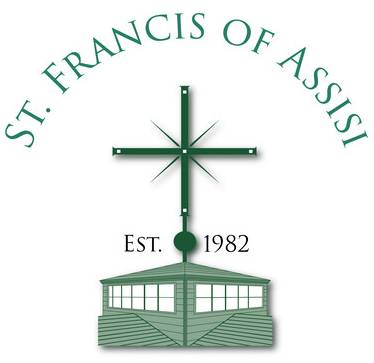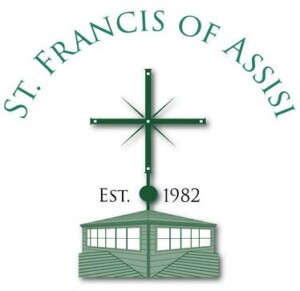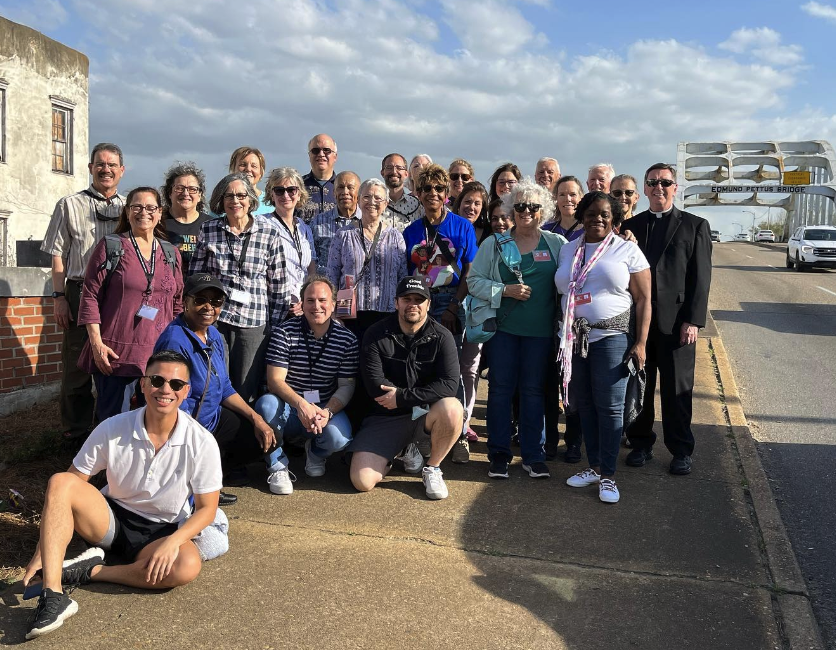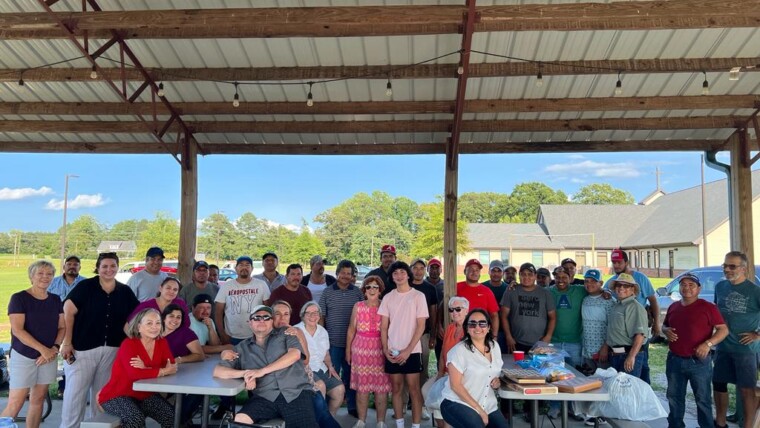Why do we celebrate and memorialize significant dates? Some are celebratory, such as birthdays and wedding anniversaries, but we also recall the tragedies in life, such as Pearl Harbor, September 11th, and ‘the Alamo.’ Is it because we believe, as George Santayana, the renowned Spanish-American philosopher and writer, has said, “Progress, far from consisting in change, depends on retentiveness….Those who cannot remember the past are condemned to repeat it?”
Honoring struggle and progress is essential, lest we forget. This is one reason we invoke the phrase “Never forget” concerning the horror of the Holocaust. This belief is one of the inspirations that led to a pilgrimage in March 2023. Trever Thompson, former Director of the St. Francis Office of Justice and Peace, shared, “We had 35 people on the bus, members of St. Francis of Assisi, the Baptist Grove Baptist Church, and Lincoln Park Holiness Church, the latter two churches are black congregations we’ve partnered with for many years.” But where were they headed? To the heart of the Civil Rights movement.
“The idea for this trip began in 2019,” Trevor explains, “I explored the possibility of a tour of Civil Rights sites in the South after a couple of successful parish trips to the International Civil Rights Center & Museum in Greensboro. Over the next couple of years, we had over 200 people participate in at least one of our Office of Justice and Peace programs around racial justice.” Subsequently, the interest in a pilgrimage to visit some of the sites discussed gained momentum. One of the St. Francis parishioners, Paul Williams, began to explore partnering with Baptist Grove Church. One of Baptist Grove’s members, Keith Shannon, had an extensive history of leading bus trips for youth visiting various colleges in the South. Paul and Keith met, and the vision for the pilgrimage began to take shape. “Because of COVID, we postponed a couple of times, but in God’s time, we set off on March 1st,” said Trevor. The vision from the beginning would be that this trip had a cross-racial and ecumenical quality, a feeling that the opportunities for sharing experiences and emotions would help in the larger repairing, reconciling, and healing needed around the sin of racism.
The bus trip traveled from Raleigh to Atlanta on Wednesday, March 1st, to visit the MLK Center and the Southern Christian Leadership Conference (SCLC). The group then traveled to Montgomery, Alabama, with a full day visiting the Legacy Museum, the National Lynching Memorial, the Alabama Historical Commission’s Freedom Rides Museum, Dexter Avenue Church, where Martin Luther King, Jr. most famously directed the 1956 Bus Boycott from his office in the lower unit of the church, the Rosa Parks Museum, and finally Alabama State University. The next day the group crossed to Selma, Alabama, and the Edmund Pettus Bridge, where law enforcement personnel confronted voting rights marchers on March 7, 1965. The violent police conflict that day became known as ‘Bloody Sunday.’
On Saturday, the group went to Birmingham to visit the Birmingham Civil Rights Institute and the 16th Street Baptist Church, where on September 15, 1963, a bomb exploded before Sunday morning services, killing four young girls and injuring many others at the predominantly black church. In the aftermath of the bombing, thousands of angry protesters gathered at the scene, and police and state troopers went to break the protests up as violence broke out across the city. The last stop for the group was at Talladega College, Alabama’s oldest historically black college, founded by formerly enslaved people in 1867 as the Swayne School before being renamed Talladega College in 1869. Before returning to Raleigh, the trip closed on Sunday with a worship experience at Open Word Christian Ministries in Fairburn, Georgia.
Those were just the events and places they visited. The ‘retentiveness’ Santayana spoke of was also experienced by many who journeyed as witnesses to this past. B.J. Avent-Farmer, a member of Baptist Grove Church, was reminded of her youth, “ As an American of African descent growing up in eastern NC during the 50s and 60s, I remember only too well being ostracized. I remember the whites-only water fountain signs and the colored and white bus station waiting rooms.” She said the ‘Race Relations Tour’ took her to a painful place: “Boy! I had buried those feelings deep down somewhere. The unexpected pain demanded that I separate, decompress, and try to process at least some of what I was reliving. I am still unpacking and processing those feelings, unsure when I can articulate them well enough to express my feelings clearly. Maybe never.” She also considered the trip’s impact on others: “The Tour took me to a place surrounded by friends of a lighter hue who acknowledged their sorrow and shame as they walked the museums and among the outdoor statues. Many of them mused aloud, ‘I did not know.’”
Patricia Henry, a member of St. Francis, was appreciative, saying, “Thank you for the amazing opportunity to immerse into our collective history from slavery to mass incarceration and the civil rights movement to activism. Thank you for enabling us to stand together in solidarity to honor our shared truth in a truly visceral way.” She remembers the message of Pastor Gary Taylor of Open Word Christian Ministries on the last day, ‘Love Preserves, Love Hopes, Love Trusts, Love Protects.’
Nancy Dilger, another member of St. Francis, offered that she was “Grateful for the experience of joyful worship, safe travel, sacred silence, earned trust, raw emotion, and love in each heart. Together we confronted American history face to face, side by side, and with each other in truth and love.”
Jeremy Roca also remembers Pastor Taylor’s message: “We bookended our pilgrimage with the senior pastor of Baptist Grove Church, Rev. Dr. Bankole Akinbinu’s message to ‘come.’ The invitation of our God to renew the face of the earth. This trip reminded me that we never go alone. It consoles me to know that there is a busload of folks I can lean on when things become scary and overwhelming in the work of equity and justice; I want to remember the guiding scripture passage chosen for this journey that Pastor Gary Taylor expounded upon: ‘love.’”
Msgr. Clay accompanied the group as a fellow pilgrim. Several things gripped him that are still ruminating in his mind and heart. “It was chilling to see at the Legacy Museum a depiction of the life of 12 million Africans brought, bought, and enslaved in the Americas who were subsequently tortured, denied any acknowledgment of being a human being, separated as a family from each other, and treated as property. This cruelty continued after slavery was abolished in 1865, exemplified by some 6500 black men and women lynched until as late as 1981. While Civil Rights have changed the equation, we are still stuck in a system of racism that seems as entrenched as ever. Indeed, there is still much work to be done.”
The impressions and feelings generated among those on the trip were powerful and impactful. Progress in understanding, at least among those who witnessed and those with whom they will share their experience, is a small step towards avoiding repeating the mistakes of our collective past; yet, small steps start the journey.
Click here to see a local news report on the trip.
Author: Mike Watson







